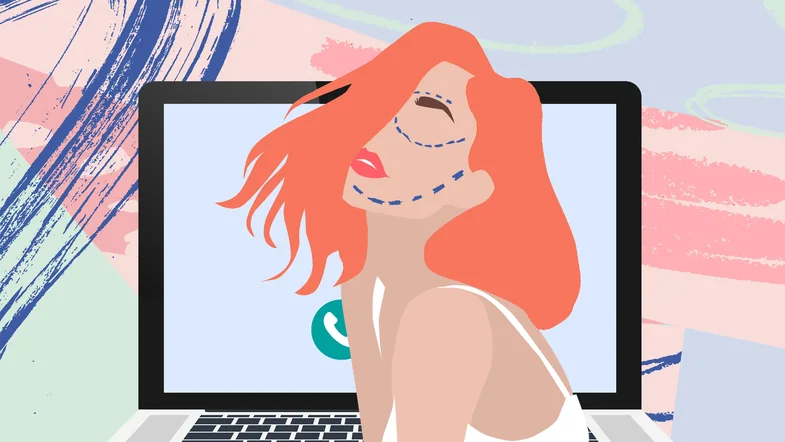
In modern times, when communication through cameras has become an inseparable part of our lives, a new phenomenon has emerged that is changing the way we perceive ourselves: "Zoom Dysmorphia".
This term, coined to describe the growing concern about how we look on a camera screen, has begun to profoundly affect the way we view and value our physical appearance.
How does "Zoom Dysmorphia" affect us?
Spending a lot of time in front of cameras, such as in work video chats (Zoom meetings), virtual meetings with friends or other online meetings, many of us have started to worry about what we see on the screen. This concern has a significant impact on our self-esteem and feelings, leading to insecurity and negative emotions regarding physical appearance.
How is the perception of our appearance changing?
One of the main factors contributing to this phenomenon is the way cameras and computer screens present our view. The image we see on the screen is often different from what we see in the mirror, due to different lighting, camera angle and screen size. This can create an inaccurate perception of our appearance, making us feel less satisfied with ourselves.
Consequences of Zoom Dysmorphia
The consequences of "Zoom Dysmorphia" are numerous and affect daily life. Many individuals begin to feel dissatisfied with their appearance, seeking aesthetic procedures or treatments that are often unnecessary. These feelings of uncertainty and anxiety can affect our self-confidence and our relationships with others, creating a never-ending cycle of anxiety and uncertainty.
How to prevent the phenomenon "Zoom Dysmorphia"?
Limit screen time: Use the camera only when necessary and try to limit the time you spend looking at yourself on the screen.
Focus on the content of conversations: Focus more on the content of conversations and meetings than on your physical appearance. This helps reduce stress and worries related to appearance.
Remember that the way you look on camera is not a reflection of how others see you, there are many factors that affect why the camera can show you differently than you really are (lighting, screen size, wrong angle ).
In this era of virtual communication, it is important to remember that the images we see on the screen are not always the exact representation of ourselves. Let's take care of ourselves and focus on who we are, not just what we see on the screen.
Suggested articles:





